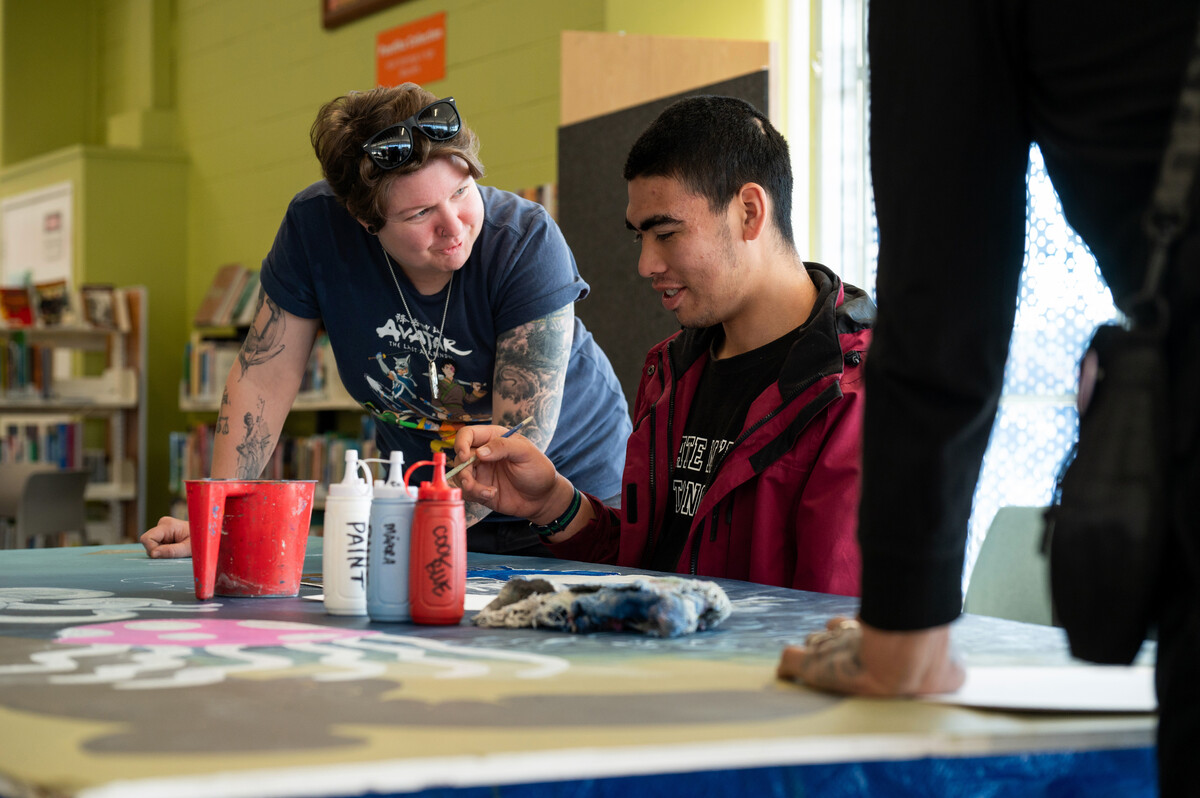
Closing the digital divide with Recycle A Device
Your old laptops can be the start of a young person’s future—and a step toward a more sustainable world. Here’s how Recycle A Device uses laptop donations from individuals and businesses to support rangatahi in need.
It can be difficult to imagine life without our devices. With technology woven through nearly every aspect of life, few stop to consider the people and communities that don’t have access to the digital world.
In Aotearoa, the digital divide is felt hardest by our rangatahi. Our devices are an open door to a world of opportunity, and with Recycle A Device, your old laptop has the potential to support a young person in unique and inspiring ways.
Without access to a device, many of our young people face barriers to participation in education and employment – that’s where Recycle A Device (RAD) steps in.

“We take pre-loved laptops and teach rangatahi how to refurbish them, and then get them into the community so those people who need them - mostly rangatahi - can access education and employment pathways.”
A simple idea with powerful results, through their programmes, RAD uses donated laptops to enable rangatahi access to both digital tools and the skills and confidence to engage in further employment pathways. Taking place in schools and community centres, every donated device is carefully checked before undergoing refurbishment at the hands of rangatahi, who learn a range of hands-on tech skills before leaving the programme with the laptop they brought back to life.
“If rangatahi walk out at the end of today with a laptop, that’s success for us,” Kelsey adds. “If they gain any tech education skills, that’s a bonus. And if it sparks an interest in tech—well, that’s the cherry on top.”

These workshops often blossom into ongoing ‘RAD Clubs’—student-led groups that meet regularly to refurbish laptops for their communities. “Last year we got 2,920 laptops into the community,” Kelsey shares.
From just 25 clubs in early 2024, RAD now supports 40 clubs nationwide, a reflection of growing demand and grassroots momentum. The need for RAD programmes and initiatives is felt across communities. “We hear regularly from schools and community organisations that this really helps rangatahi who are a bit disconnected from education feel empowered and excited about learning again.”
Beyond impacting rangatahi, RAD programmes are inherently sustainable, and contribute to ongoing climate action efforts targeting e-waste in Aotearoa, “The biggest environmental cost of a laptop is in its manufacturing. By extending its life, we reduce e-waste and teach young people to engage with tech in a more ethical, sustainable way.”
However, relying on donated devices can be challenging, and the supply of usable laptops is getting tight. “Organisations are holding onto their devices longer or selling them off. Sometimes we hear of laptops just sitting in cupboards—depreciating instead of being used to make a difference.”
“We know the digital divide isn’t something we can solve alone,” says Kelsey. “That’s why collaboration with local groups and donors is essential. We're all in this together.”
Give a young person the opportunity to create a different future for themselves, donate your unused laptop here




